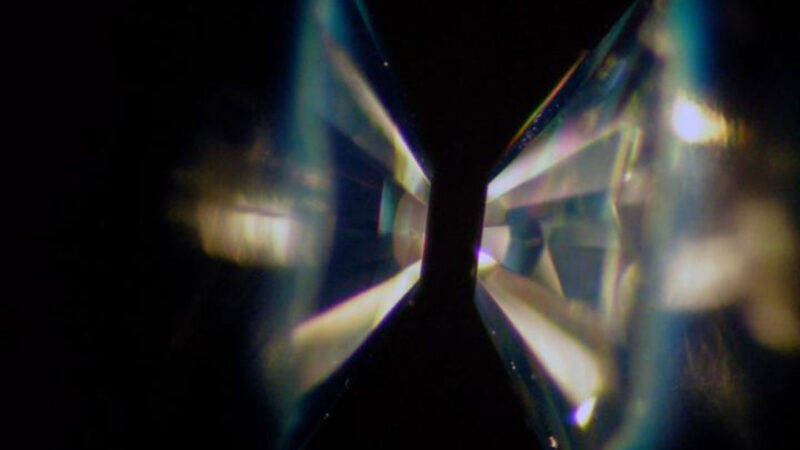LAS VEGAS — It’s a bold claim: The quest to create a superconductor that works under practical conditions is finally fulfilled, a team of researchers says. But controversy has dogged the team’s earlier claim of record-breaking superconductivity, suggesting the new result will face extreme scrutiny.
Many materials become superconductors, able to transmit electricity with no resistance, provided they’re cooled to very low temperatures. A few superconductors work under warmer conditions, but those must be squeezed to crushing pressures, meaning they’re also impractical to use.
Science News headlines, in your inbox
Headlines and summaries of the latest Science News articles, delivered to your email inbox every Thursday.
Thank you for signing up!
There was a problem signing you up.
Now researchers are saying they have created a superconductor that works at room temperature and relatively low pressure. A superconductor that operates under such commonplace conditions could herald a new age of high-efficiency machines, supersensitive instrumentation and revolutionary electronics.
“This is the start of the new type of material that’s useful for practical applications,” Ranga Dias, a physicist at the University of Rochester in New York, said March 7 at the American Physical Society meeting.
The team reported the new result with a material made of hydrogen, nitrogen and lutetium. Dias and colleagues blended the elements together in a device known as a diamond anvil cell. They then varied the pressure and measured the resistance to electrical flow in the compound.
At temperatures as high as about 294 kelvins (21° Celsius or 70° Fahrenheit), the material seemed to lose any resistance to electrical flow. It still required pressures of 10 kilobar, which is about 10,000 times the pressure of our atmosphere. But that’s far lower than the millions of atmospheres of pressure typically required for superconductors that operate near room temperature. If confirmed, that makes the material much more promising for real-world applications.
The research likely will face significant skepticism, in part because of the firestorm over the team’s earlier publication that claimed discovery of superconductivity in carbonaceous sulfur hydride at 15° C (SN: 10/14/20). Editors at Nature retracted that paper, over the objection of Dias and his coauthors, citing irregularities in the researchers’ data handling that undermined the editors’ confidence in the claims (SN: 10/3/22).


